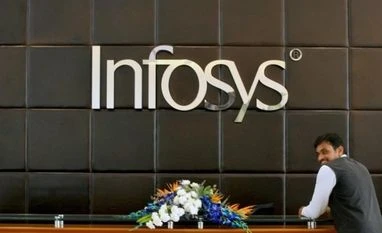Infosys has warned that the company’s performance and stock, in exchanges both in India and the US, could be affected because of actions of activist shareholders, hinting at the public interventions in the firm’s affairs by its founder NR Narayana Murthy.
Infosys also had warned of difficulties in executing its strategy if the management and board continued to spend time on responding to allegations against the company as it did over the past year, Infosys said in its 20-F filings to the US Securities and Exchange Commission on Tuesday.
Murthy, who had raised the red flag internally, went public over the past year with his concerns over the “dilution of disclosure norms” by Infosys, the main one being the severance pay made to its former Chief Financial Officer Rajiv Bansal.
The Infosys founder had also sought accountability by the board, including appointing a co-chairman, which the company obliged by elevating independent director Ravi Venkatesan.
Company Chairman R Seshasayee and Chief Executive Vishal Sikka took pains to explain that they were not violating corporate governance norms and efforts are on to plug gaps in their disclosure.
They have maintained responding to allegations was a distraction and the time and resources thus lost could have been used for growing the company’s business.
In April, Sikka cited “unanticipated execution challenges and distractions” as a reason for slow revenue growth in the fourth quarter ended March.
In February, Murthy had gone public against the company, saying it was ignoring his suggestions.
"Negative media coverage and public scrutiny may divert the time and attention of our board and management and adversely affect the prices of our equity shares and ADSs," it said in its risk factor. “Actions of activist shareholders may adversely affect our ability to execute our strategic priorities, and could impact the trading value of our securities."
An Infosys spokesperson said: "We would like to categorically state that ‘activist shareholders’ called out as a risk in our Form 20F do not refer to any particular group of investors or individuals.”
“Our industry is undergoing a significant transformation. Over the past year, there have been specific instances of companies seeing active participation and discussion with shareholders and stakeholders.”
This is the first time Infosys has cited shareholders as a risk factor in its filings. Murthy and the rest of the founders are categorised as promoters, who collectively own a 12.75 per cent stake in the company.
Analysts say ‘activist shareholders’ as a risk factor is true for companies globally and Infosys is vulnerable to such actions.
“See how Elliott Management changed Cognizant's directions to a large extent," said Shriram Subramaniam, managing director of investor advisory firm InGovern Research Services.
"At the same time, Infosys is a vulnerable company in taking pressure from any activist investor."
In February, Cognizant obliged Elliott Management by shifting its focus towards digital, expanding margins, and returning $3.4 billion to shareholders three months after the hedge fund raised concerns about how the company was run.
While highlighting that businesses could be disrupted due to the negative press it receives from Murthy's outrage, Infosys has made efforts to address concerns on disclosures.
In its updated code of conduct for employees and directors, Infosys has committed to providing full, fair, accurate, timely, and clear disclosures in its regulatory filings. It has assured employees that there will not be any retaliation, a concern raised by an anonymous whistleblower who had raised concerns of violations of corporate governance. It has also reiterated that personal expenses will not be reimbursed by the company, a red flag raised by the whistleblower.
“The integrity of our financial transactions and records is critical to the operation of our business. Our shareholders’ trust is based on their confidence in the accurate recording of our financial transactions,” the note said.
Unlock 30+ premium stories daily hand-picked by our editors, across devices on browser and app.
Pick your 5 favourite companies, get a daily email with all news updates on them.
Full access to our intuitive epaper - clip, save, share articles from any device; newspaper archives from 2006.
Preferential invites to Business Standard events.
Curated newsletters on markets, personal finance, policy & politics, start-ups, technology, and more.
)